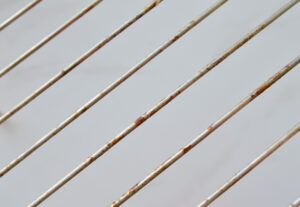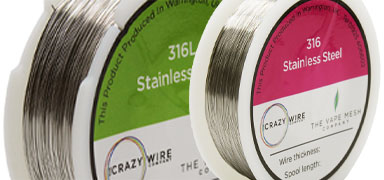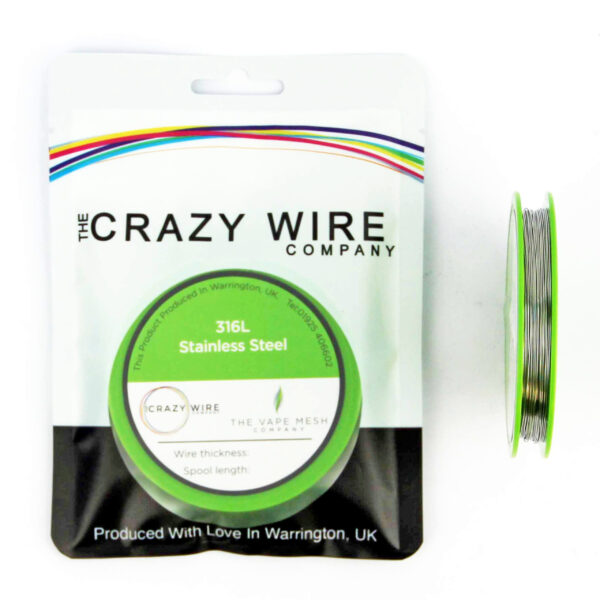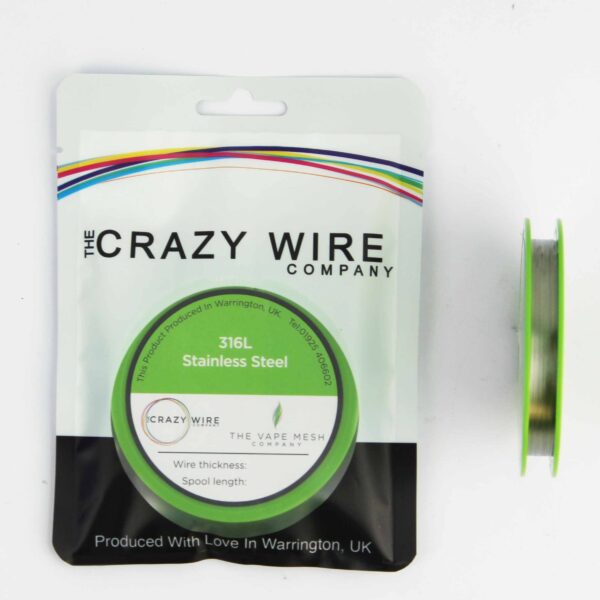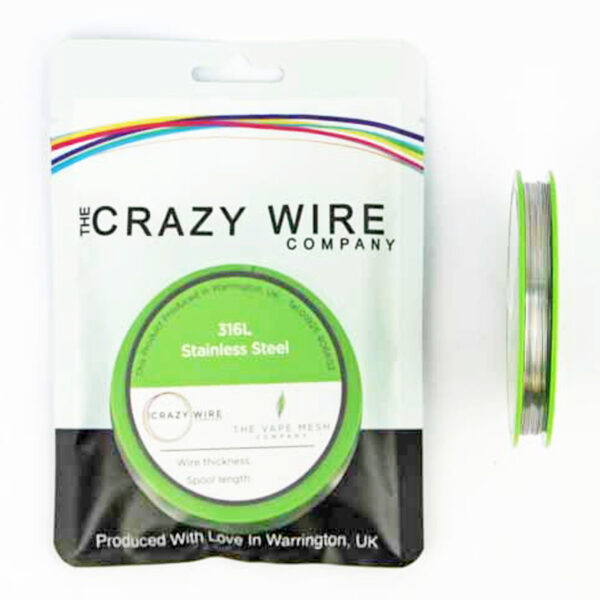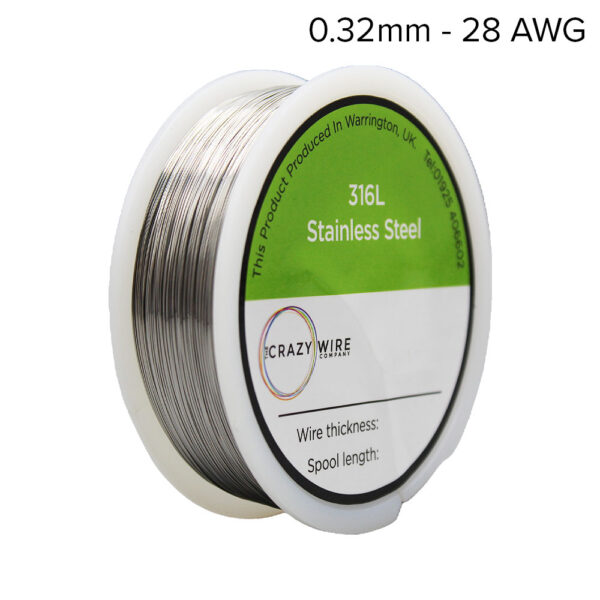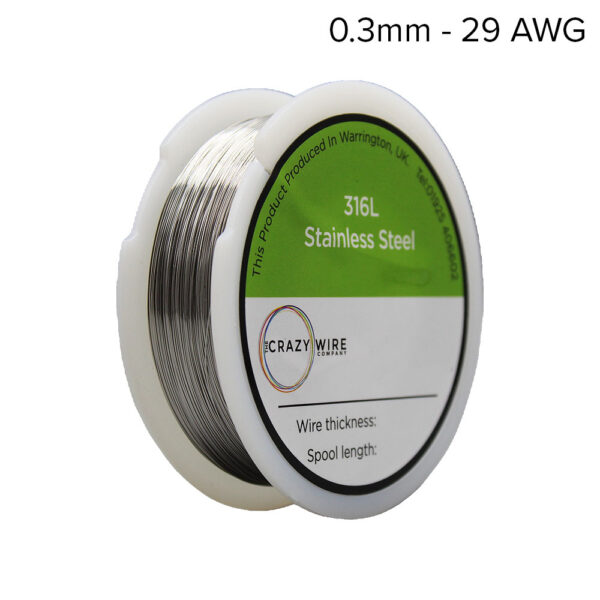What You Need To Know About: Marine Grade Stainless Steel Wire
This guide on marine grade stainless steel wire is part of our series to outline everything that you need to know about our products. We hope that you find it helpful and that it answers any questions that you may have.
We get asked about our wires’ resistance to corrosion quite regularly. This should answer some questions that you may have.
Let’s jump into it…
What Defines A Marine Grade Stainless Steel Wire?
Marine grade stainless steel wire is a type of stainless steel that is specifically designed to resist corrosion in a marine environment. This type of stainless steel typically contains higher levels of chromium and nickel than standard stainless steel, which helps to protect it from rust and corrosion caused by saltwater and other harsh elements found in marine environments. Marine grade stainless steel wire is commonly used in applications such as marine rigging, marine hardware, and other applications where corrosion resistance is important.
Which Grades Are Best?
The most common marine grade stainless steel grades are:
Marine grade stainless steel 316 and 316L are known for their excellent corrosion resistance in marine environments, especially against pitting and crevice corrosion. They have a higher nickel and molybdenum content than 304 and 304L, which gives them superior resistance to chloride-ion stress-corrosion cracking.
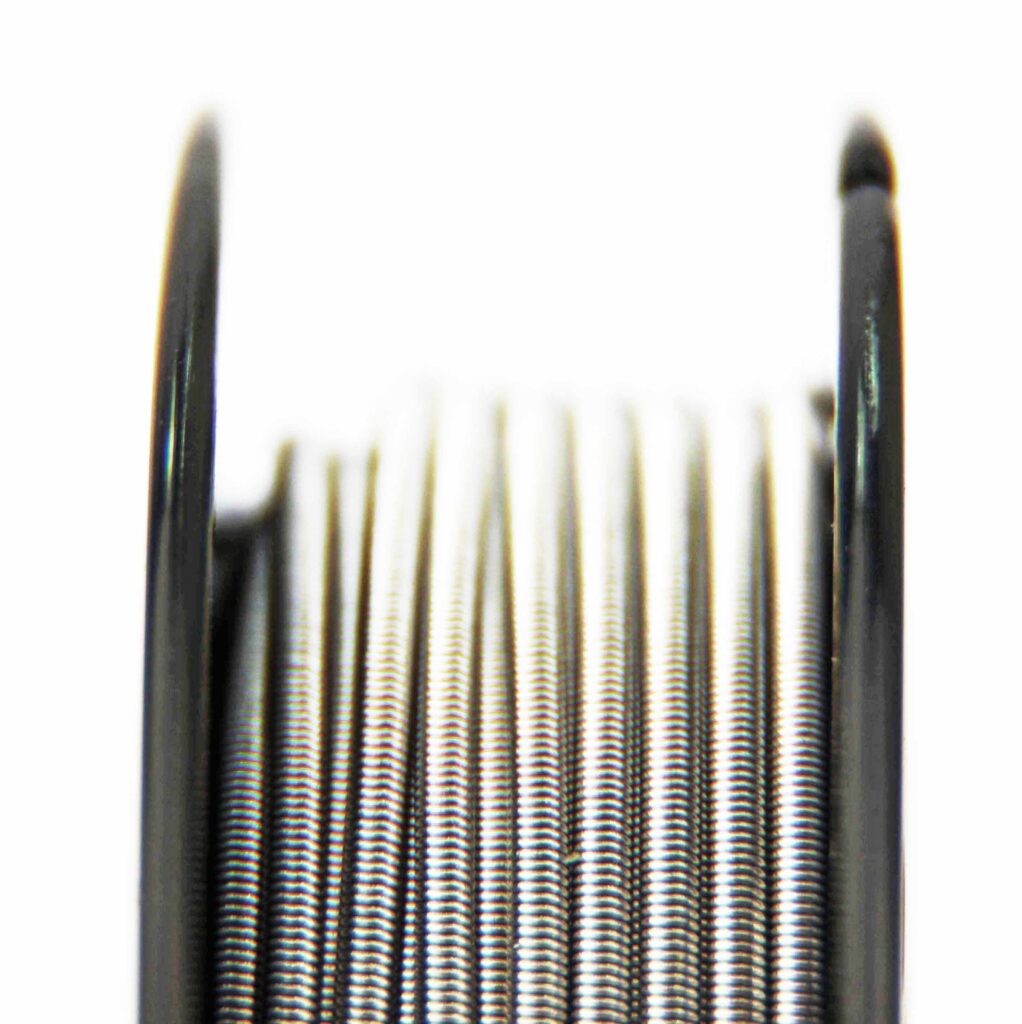
Marine grade 304 and 304L, while not as resistant to corrosion as 316 and 316L, are still considered marine grade and are commonly used in marine applications. They provide good resistance to general corrosion, especially in non-chloride environments. They also have good formability and weldability.
It is worth noting that in addition to alloy composition, the fabrication process and surface finishing also play a big role in corrosion resistance.
What Is Stainless Steel Used For?
Marine grade stainless steel wire is commonly used in a variety of marine and offshore applications, including:
- Marine rigging: It is used in the construction of cables, chains, and other rigging components used on boats and ships. These items must be able to withstand the forces of the wind and waves, as well as resist corrosion.
- Marine electrical equipment: It is also used in the construction of marine electrical equipment such as lights, electrical panels, and other items. Marine grade stainless steel wire is resistant to corrosion and is an electrical conductor, making it an ideal choice for marine electrical equipment.
- Anchor Chain: It is also used in the construction of anchor chains, as it’s corrosion resistance and strength is necessary for the operation of the ship.
- Marine netting: It is also used in the construction of marine netting, such as fishing nets, safety nets, and other items.
- Marine hardware: It is often used in the construction of marine hardware such as cleats, chocks, bollards, and other deck hardware that are exposed to saltwater and other harsh elements, and marine grade stainless steel wire provides the necessary corrosion resistance.
- Marine transportation: It is also used in shipbuilding, for example in construction of superstructures, decks, hulls, etc.
These are just a few examples, there are many other applications where marine grade stainless steel wire may be used, including in the construction of marine structures such as piers, docks, and breakwaters.
It is worth noting that in addition to alloy composition, the fabrication process and surface finishing also play a big role in corrosion resistance.
Can I Weld It?
Yes, marine grade stainless steel wire can be welded. Marine grade stainless steel wire is typically made from 316 or 316L stainless steel, which are both highly weldable. However, as with any welding process, certain precautions should be taken to ensure a high-quality weld.
When welding marine grade stainless steel wires, it is important to use the appropriate welding process, filler metal, and welding techniques. TIG welding is the most common welding process used for marine grade stainless steel wire, but MIG and Stick welding can also be used. It is also important to use a filler metal that is compatible with the marine grade stainless steel wire, such as 316L or 309L.
It is important to clean the surface of the marine grade stainless steel wire thoroughly before welding to remove any dirt, oil, or other contaminants that may affect the quality of the weld. It’s also important to maintain proper welding techniques, such as keeping the electrode at the correct angle and maintaining a consistent weld speed.
It’s also important to note that welding stainless steel generates heat that can affect the material properties and can cause warping or cracking if not cooled properly. A proper post-weld heat treatment is recommended to minimise these issues.
In summary, marine grade stainless steel wire can be welded, but proper welding techniques and filler metal selection must be used to ensure a high-quality weld. It’s also important to keep in mind the potential issues that can arise from welding process and plan accordingly.
What Is Its Lifespan?
The lifespan of marine grade stainless steel wires can vary depending on various factors such as the specific alloy used, the environment it is exposed to, and the level of maintenance.
The actual lifespan will depend on the specific conditions to which it is exposed. Marine grade stainless steel wire that is continuously submerged in saltwater will have a shorter lifespan than marine grade stainless steel wire that is only occasionally exposed to saltwater.
Proper installation, maintenance, and regular cleaning can help to prolong the lifespan of marine grade stainless steel wires. For example, if the wire is used in rigging, it should be inspected regularly and any signs of wear or damage should be addressed promptly.
It is also important to consider that marine grade stainless steel wires can last indefinitely if they are not exposed to a corrosive environment, or if they have been protected from corrosion with a proper coating or surface treatment.
In summary, the lifespan of marine grade stainless steel wire can be quite long, but it depends on the specific alloy used, environmental conditions, and the level of maintenance. With proper care and maintenance, marine grade stainless steel wire can last for many years.
Will It Rust?
It is highly resistant to corrosion, including rusting, in a marine environment. This is due to the high levels of chromium and nickel in the alloy, which provide protection against rust and corrosion caused by saltwater and other harsh elements found in marine environments. Marine grade stainless steel wire is also known for its resistance to pitting and crevice corrosion.
However, it’s worth noting that stainless steel can still rust under certain conditions. If the surface of the marine grade stainless steel wires are damaged, or if the wires are exposed to chloride ions, they can rust. In addition, if the wire is not properly cleaned and maintained, it may be more susceptible to rust.
It’s also important to note that marine grade stainless steel wire is not completely immune to rust, and it can rust in certain conditions, such as if it is exposed to high levels of chlorine, or if the surface is damaged.
In summary, marine grade stainless steel wires are highly resistant to rust and corrosion in a marine environment, but they’re not completely immune to rust. Proper installation, maintenance, and regular cleaning can help to prolong the lifespan of marine grade stainless steel wire, and to minimise the risk of rust.
We think that it pretty much everything that you might need to know about this use for our wire. We offer a massive range of stainless steel wire and other nickel materials through our store. Choose the wire that you want to work with and we’ll get spooling.
If you’re interesting in learning more about wire, check out our other blog on Everything You Need to Know About Wires.
We are also proud to supply this product on our highly popular eBay store, check us out there too.
Thank you for checking out our site.
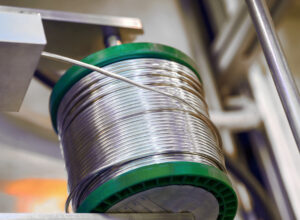
Nichrome Wire Safety: Top Tips for Working Safely
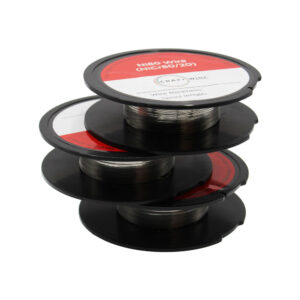
Best Wire for Electronics Projects
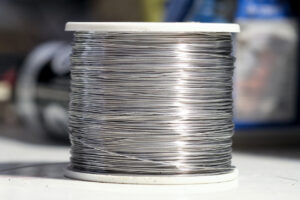
Is Ni80 Wire Suitable for DIY Heating Elements
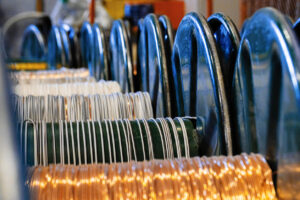
Wire Grades Explained
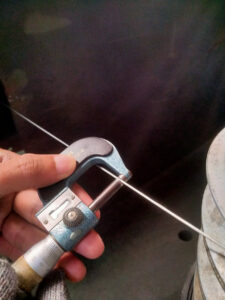
How Wire Diameter Affects Strength and Flexibility
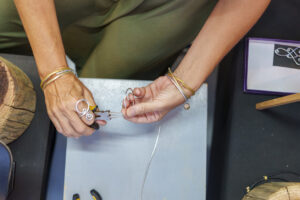
How to Cut and Shape Wire for Custom Applications

Can Wire Be Used in 3D Printing?
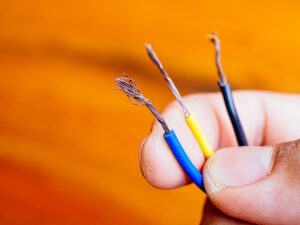
How Wire Composition Affects Conductivity
